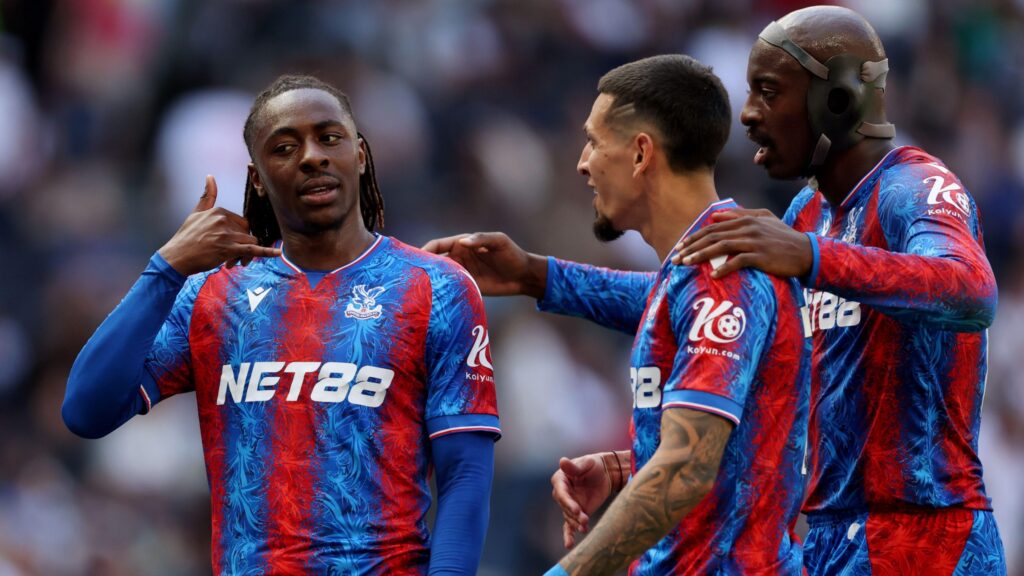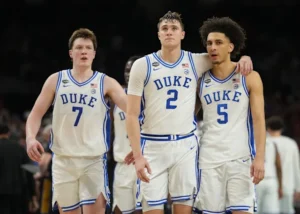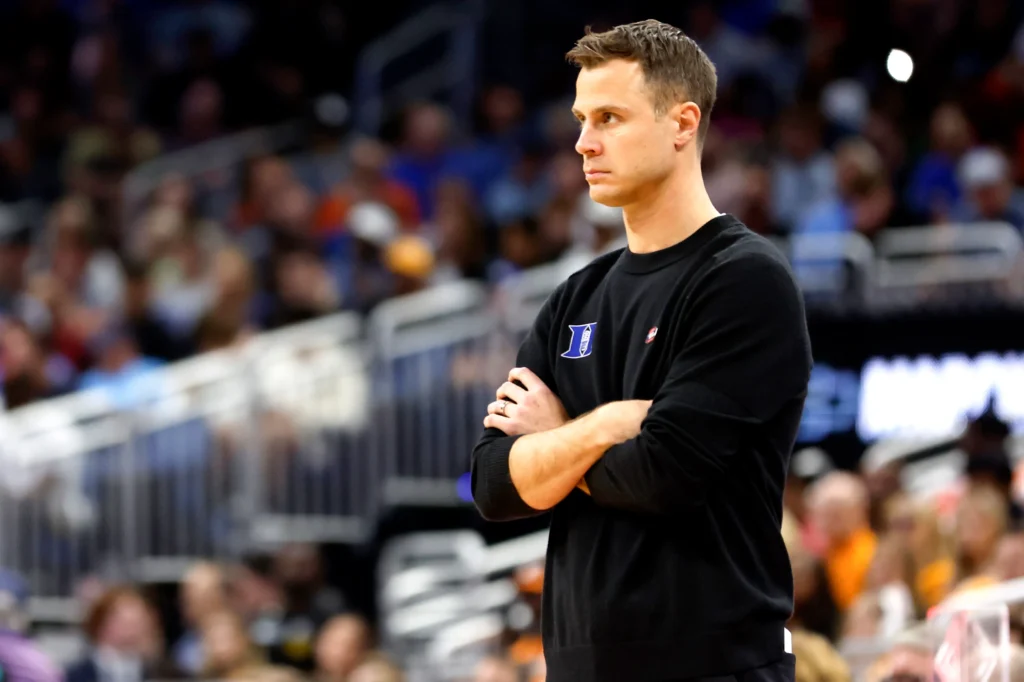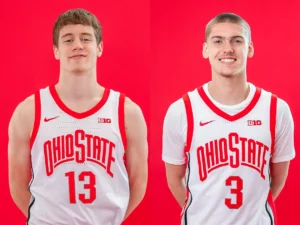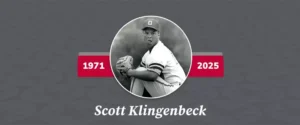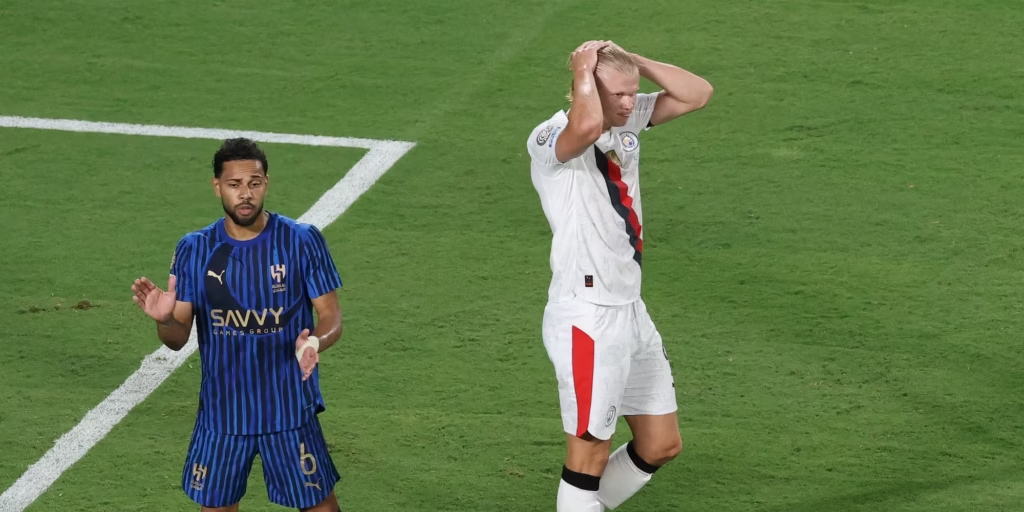
Manchester City arrived at the 2025 Club World Cup with the aura of champions. Pep Guardiola’s side were among the top contenders, widely tipped to dominate the newly expanded 32-team tournament. City, reigning Champions League winners and serial domestic titleholders, had been expected to reach at least the semi-finals. Yet, in a night of disbelief and drama in Orlando, they were dumped out in the Round of 16 by Saudi Arabian giants Al Hilal in a stunning 4-3 defeat after extra time.
The result sent shockwaves through global football. Not just because of the scoreline, but because of how it happened. City, known for their calmness under pressure and tactical sophistication, were caught out by Al Hilal’s hunger, tactical discipline, and lethal counter-attacking. It was a match that highlighted how far football in emerging markets like Saudi Arabia has come and served as a reminder that no team, no matter how dominant on paper, is invincible.
The game started brightly for Manchester City. Within the opening ten minutes, they took the lead through Bernardo Silva, who was in the right place at the right time to tap home a deflected cross. The early goal appeared to be a statement of intent and gave the impression that City would control the match with their usual brand of precise, possession-based football. But Al Hilal were not flustered. Instead, they responded with determination, staying compact at the back and waiting for moments to strike.
Just before the halftime whistle, Al Hilal found their moment. Marcos Leonardo, a rising star in Saudi club football, headed home a superb equalizer barely 42 seconds into first-half added time. It was a psychological blow for City, who had appeared to be cruising. Coming out for the second half, Al Hilal began to grow in confidence. Within seven minutes, they took a 2-1 lead through Malcom, formerly of Barcelona and Zenit, who capitalized on a defensive lapse to put his side ahead.
City didn’t take long to respond. Erling Haaland, who had been relatively quiet in the first half, struck back in the 55th minute with a powerful finish, bringing the score to 2-2. It was a goal that seemed to signal the beginning of another City fightback. But while the equalizer steadied the ship for Guardiola’s side, Al Hilal refused to yield. The match moved into extra time with both teams locked in a fierce battle.
In extra time, Kalidou Koulibaly rose highest from a corner and powered home a header to give Al Hilal a 3-2 lead. City answered again, this time through Phil Foden, who drilled a low shot through a crowded box to make it 3-3. But the game’s decisive moment came in the 112th minute. Marcos Leonardo, always alert, pounced on a rebound after Ederson failed to hold onto a long-range effort. It was a poacher’s goal and sent Al Hilal’s bench into delirium.
City pushed desperately in the final minutes, but Al Hilal’s defense held firm. At the final whistle, the Saudis celebrated one of the biggest upsets in modern football, and perhaps the most dramatic result in the history of the Club World Cup.
Much credit must go to Al Hilal’s goalkeeper, Yassine Bounou. The Moroccan international was instrumental, pulling off ten saves in the match and commanding his area with authority. Across the tournament so far, he had made 23 saves in just four games, highlighting his importance to the team. His performance was one of experience, composure, and instinct—everything needed to stop a team like Manchester City.
Leonardo, with his brace, became the face of a historic victory. The young Brazilian showed confidence beyond his years, pressing high, taking his chances clinically, and unsettling City’s defensive line throughout the game. Kalidou Koulibaly, too, was immense at the back and proved his enduring quality on the big stage.
On the City side, questions will be asked. Guardiola’s substitutions raised eyebrows. Rodri, often the fulcrum of City’s midfield, was brought on early in the second half but struggled to assert control and was eventually substituted again during extra time. It was a move that reflected both tactical desperation and a concern for fitness. Kevin De Bruyne and Haaland tried to push the team forward, but cracks had appeared. City, for all their quality and possession, were vulnerable on the counter and lacked the composure and control they usually display.
Financially, the loss was significant. Manchester City missed out on over £9 million in prize money by exiting in the Round of 16. The figure could have reached nearly £25 million had they progressed deeper and won the competition. Beyond the money, there was reputational damage. The Club World Cup is an increasingly visible tournament, and City’s early exit has disrupted the narrative that European clubs will dominate the expanded format.
Tactically, Al Hilal’s coach Simone Inzaghi deserves immense praise. His game plan was simple but effective: soak up pressure, stay compact, and hit quickly in transition. With a disciplined back five and a midfield that worked tirelessly off the ball, they managed to frustrate City and limit clear-cut chances. Their courage to stick with the plan and commit forward at the right moments turned the match.
The result also has wider implications for the future of the Club World Cup and global club football. For too long, European teams have been seen as the default favourites. This result shows that with the right investment, structure, and coaching, clubs from Asia, Africa, and beyond can compete. Saudi Arabia’s commitment to building its domestic league and investing in infrastructure is now yielding visible returns. Al Hilal’s victory is not just a one-off—it’s part of a broader movement that is challenging the old hierarchy.
This game also raises the bar for what is expected of top-tier clubs. Manchester City are no strangers to pressure, but this kind of defeat will prompt introspection. Guardiola will be forced to reassess his tactical approach in high-stakes knockout matches. Though City remain dominant domestically, their vulnerability in single-elimination formats has been exposed.
The players will take this hard. Bernardo Silva acknowledged after the game that the result was embarrassing, and Guardiola admitted they were “punished” for their defensive lapses. The manager, always a philosopher of the game, noted that matches of this magnitude are often decided by small margins. In this case, it was City’s failure to take control after going ahead and their inability to defend against quick transitions.
Looking ahead, City must regroup. The domestic season and the Champions League await, and this defeat will be used as a lesson. For some of the squad, especially veterans like Kyle Walker and De Bruyne, the next opportunity at a global title might not come again. Younger players like Foden and Haaland will have to carry the torch forward with renewed focus.
For Al Hilal, the journey continues. They now face Fluminense in the quarter-finals, a tie that suddenly seems winnable. Confidence is high, and the victory over City has galvanized belief not just within the team, but across a footballing nation. It is a reminder of how far ambition and investment can go when coupled with tactical clarity and fearless execution.
The 3-4 scoreline will live long in the memory—not just for the result, but for what it symbolizes. A changing of the guard may be too strong a statement for now, but the walls around European dominance are certainly cracking. Al Hilal’s triumph is a signal to clubs everywhere: the Club World Cup is no longer just a stage for Europe and South America. It’s now a proving ground for the world.
In the aftermath, debates will rage about Guardiola’s decisions, about City’s mentality, and about the state of football’s new world order. But beyond the post-mortems, one truth stands unshaken—on this night in Orlando, football’s global dreams found validation. And Manchester City, the champions of Europe, became the first giants to fall.

